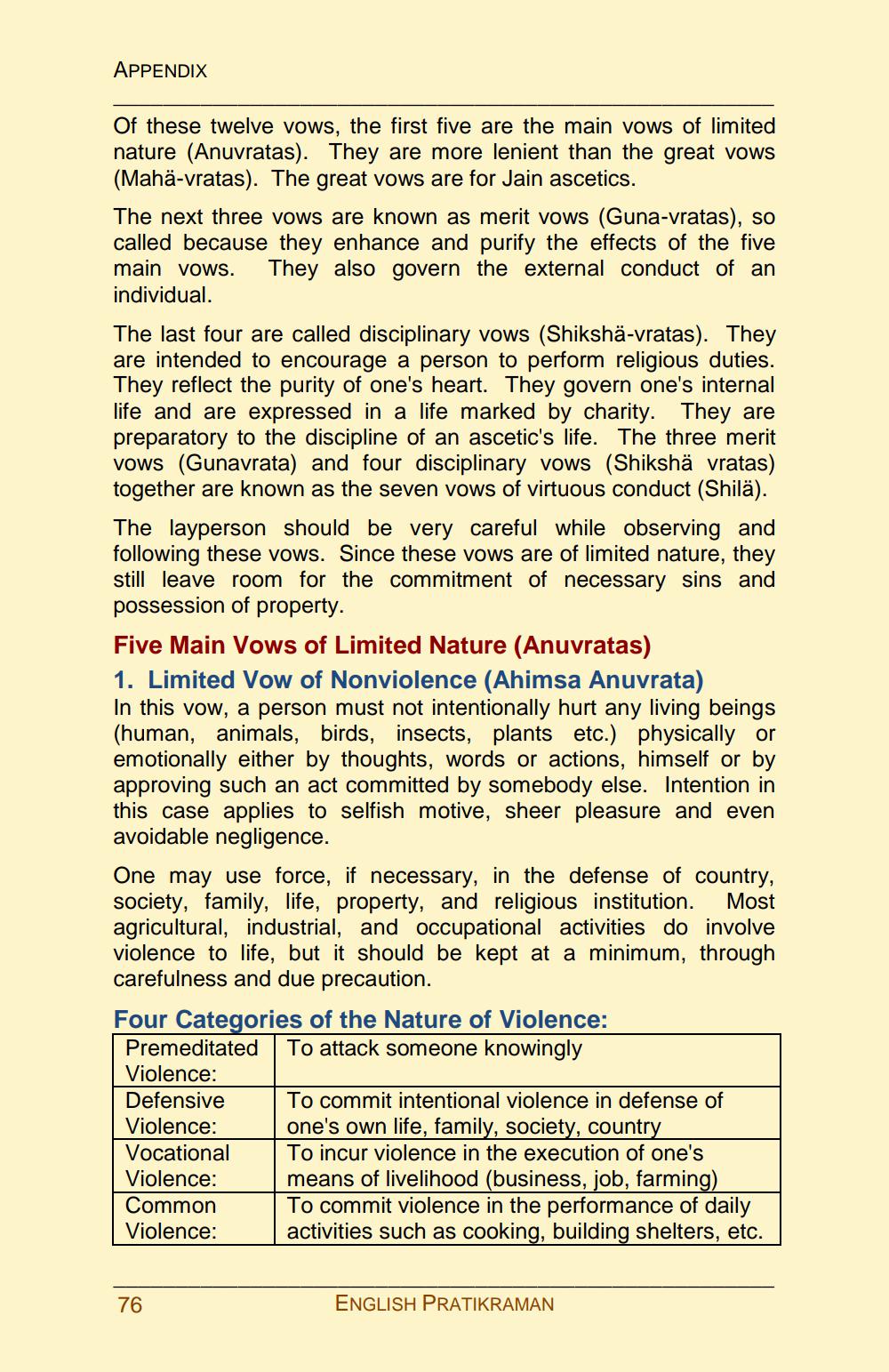________________
APPENDIX
Of these twelve vows, the first five are the main vows of limited nature (Anuvratas). They are more lenient than the great vows (Mahä-vratas). The great vows are for Jain ascetics. The next three vows are known as merit vows (Guna-vratas), so called because they enhance and purify the effects of the five main vows. They also govern the external conduct of an individual.
The last four are called disciplinary vows (Shikshä-vratas). They are intended to encourage a person to perform religious duties. They reflect the purity of one's heart. They govern one's internal life and are expressed in a life marked by charity. They are preparatory to the discipline of an ascetic's life. The three merit VOWS (Gunavrata) and four disciplinary vows (Shikshä vratas) together are known as the seven vows of virtuous conduct (Shilä). The layperson should be very careful while observing and following these vows. Since these vows are of limited nature, they still leave room for the commitment of necessary sins and possession of property. Five Main Vows of Limited Nature (Anuvratas) 1. Limited Vow of Nonviolence (Ahimsa Anuvrata) In this vow, a person must not intentionally hurt any living beings (human, animals, birds, insects, plants etc.) physically or emotionally either by thoughts, words or actions, himself or by approving such an act committed by somebody else. Intention in this case applies to selfish motive, sheer pleasure and even avoidable negligence. One may use force, if necessary, in the defense of country, society, family, life, property, and religious institution. Most agricultural, industrial, and occupational activities do involve violence to life, but it should be kept at a minimum, through carefulness and due precaution. Four Categories of the Nature of Violence: Premeditated To attack someone knowingly Violence: Defensive To commit intentional violence in defense of Violence: one's own life, family, society, country Vocational To incur violence in the execution of one's Violence: means of livelihood (business, job, farming) Common To commit violence in the performance of daily Violence: activities such as cooking, building shelters, etc.
76
ENGLISH PRATIKRAMAN




